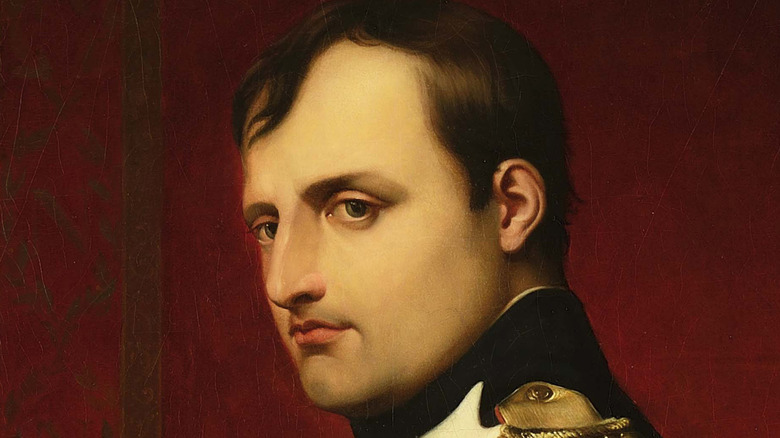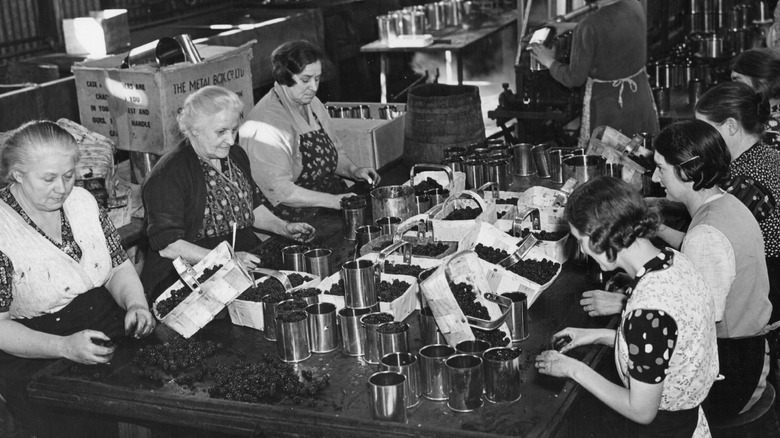How Napoleon Influenced The Canned Food Industry
You may know Napoleon Bonaparte for his political and military achievements, but the French emperor actually had a major impact on the food industry too. If it weren't for him, canned food could've been invented much later in history. In 1795, NPR reports, Napoleon came to the realization that if his armies weren't well-fed, or more specifically if "an invaded country was not able or inclined to sell or provide food," his military tactics would be useless. The solution, he decided, was to can food. The only problem was, it hadn't been invented yet. To fast-track the process, Napoleon offered up a cash prize of 12,000 francs to whoever could successfully come up with a long-term food preservation method that could feed his armies. It took 15 years for someone to collect the prize, and that someone was Nicolas François Appert, who is now known as "the father of canning."
According to Smithsonian, Appert was a candymaker who's winning innovation was inspired by the process of bottling wine. Appert would place food in jars, close off the opening with a cork, and seal it with hot wax. Afterwards he'd wrap the jar in canvas, then boil the whole thing in water. This became the earliest form of canning, and it was first used by the French Navy in 1806.
No one knew why canning worked at first
Though inventor Nicolas François Appert experimented for over a decade, he was never able to explain the science behind why his method worked. In the book he published on his findings, Appert could only reason that there had to be an "absolute deprivation from contact with the exterior air" and "application of the heat in the water-bath." It took two other innovations to explain why these two factors prevented the spoilage of food.
Per BBC, another Frenchman, Philippe de Girard came up with the idea of using tin cans instead of glass jars, only months after Appert's was published in 1810. De Girard followed the same technique, but with a sterilized tin container that he'd fill with food, seal, bring to a boil, open slightly, then seal again. He commissioned British merchant Peter Durand to apply for a patent from King George III that was granted soon after.
But it wasn't until a third Frenchman came along 50 years later that an explanation finally came about, Smithsonian shares. Chemist Louis Pasteur's research confirmed that Appert and de Girard's methods worked because they prevented the formation of microorganisms on food. Pasteur's groundbreaking discovery eventually led to the invention of pasteurization. Since then, the food industry has never been the same, and it all started with a contest to win 12,000 francs.

